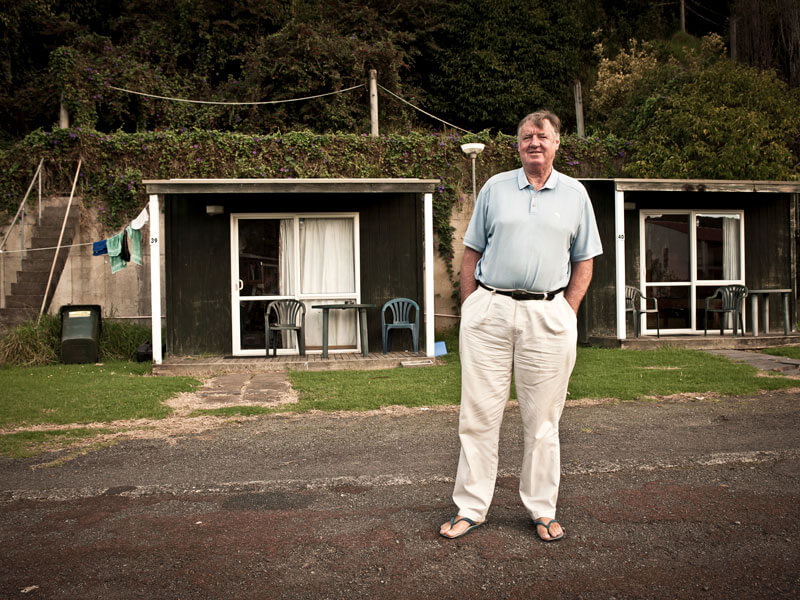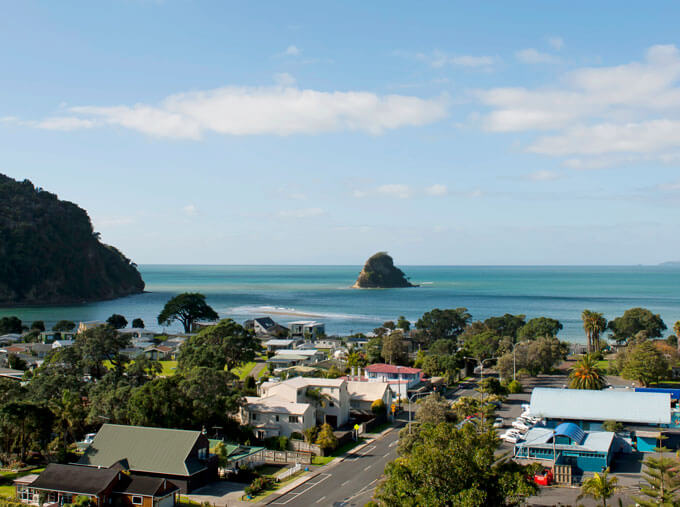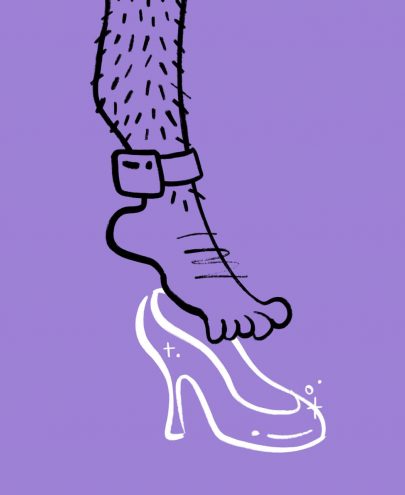Nov 21, 2018 etc
A small seaside town is dead. Was it the victim of greedy developers, warring tycoons, or a road that no longer runs through it? Can it ever be brought back to life?
This story was originally published in the June 2014 edition of Metro.
The council said it was replacing damaged soap dispensers only in high-profile destinations, and “Waiwera is not currently one of those.”
“I made quite a bit of noise,” says Steve Martin, vice-chair of the Waiwera Property Owners and Residents Association (Waipora). “I was told, ‘In South Auckland, they don’t have soap dispensers in the toilets.'”
Martin took his case right to Mayor Len Brown’s office and six months on, though the soap dispensers are back, locals reckon Waiwera is still in the crap. There was meant to be a 215-unit hotel or apartment “village” in the main street by now, built around the famous thermal spa. There was meant to be a Russian billionaire’s mansion and a five-star restaurant. There was meant to be progress. But all the grand plans have collapsed into a mire of bankruptcies and legal disputes. Deals and relationships have soured. Former partners are at war and Waiwera is caught in the crossfire. Its main street is a boulevard of broken dreams, of chipped paint and cracked footpaths. Of empty lots and an often empty bar.
A couple of years back, they had to boot out the P-dealing druggies who’d moved into the beachside cabins, and across the way in the camping ground, squalid little bunk-rooms without power or water are now rented out for 3o bucks a night. The views remain, of course, but almost everything else about Waiwera these days speaks of lost opportunities and faded glory.
It is a sunny school-holiday Friday when Metro visits, and the beach is empty, although the hot pools — which bring more than 300,000 people to Waiwera every year — are doing a brisk trade. As large groups of Pacific Islanders picnic on the grass, white and pimply mulleted teens, Henderson on hormones, stride through the cafe in their board shorts eyeing up the talent.
A large, loved-up older couple in saggy togs bob — pale and wrinkled like giant larvae — at the perimeter of the Sapphire Pool, while at an outdoor pool an ageing Japanese bather keeps her head under a pounding waterfall for so many minutes she appears to be either asleep or ossified.
The visitors seem oblivious to the deterioration that surrounds them. The rust and dead ends where potentially dangerous water slides have been removed and not replaced, the bright red waste bins a stone’s throw from the barbecues and picnic tables, the ugly bare fences of a facility past its prime.
How could an idyllic geothermal seaside resort town, just 40 minutes north of Auckland, end up this way? Where did it all go wrong for Waiwera?

Waiwera, he says, is “a run-down hovel. That’s all it is. People are hanging on by their fingertips.”
Wood has watched his turnover dwindle from a peak of $84,000 in 2007-08, when workers from the Orewa-Puhoi toll road swelled the coffers. After the bypass opened in January 2009, the workers disappeared and so did the casual visitors who may once have stopped by on their way north.
Profits dipped and have kept falling. Neat rows of ballpoint figures trace the decline of Woody’s. Turnover is now down to $478,000 and Wood’s told the landowners that by the time he pays his running costs, he can barely sustain the $6000-a-month lease, even though he lives on the property rent-free. “I’m not earning anything. I’ve told them if it gets any worse then I’ll bail.”
He can remember when the pub was heaving on Saturday nights for All Black tests because visitors who stayed in the local motels didn’t have Sky. In summer, they’d do three sittings a night in the 40-50 seat restaurant and would scarcely have time to wipe down the tables in between. But gradually the motel units have been sold off as apartments and now there are only half a dozen available for visitor accommodation. He says this, as much as the toll road, has put the dagger in Waiwera’s back.
His lease is up in October next year and he’ll be retiring further up north. He expects Woody’s, and probably the adjacent mini-golf course, will be razed.
If 2009 was the pivotal year for Woody’s balance sheet, so it was for all of Waiwera. The Global Financial Crisis was toppling lenders and property developers like dominoes.
Two of the most spectacular bankruptcies in New Zealand that year were those of self-styled property guru Dan McEwan and his son Kelly, who had a string of developments nationally that collapsed under a debt variously estimated at Sioo million to $200 million-plus.
They had been behind an ambitious plan for a hotel and apartments next to the hot pools, and a residential development on the nearby camping ground, so Waiwera’s hopes sank with them. Ironically, McEwan, the man who preached to investors how to protect themselves in the inevitable property cycle, had just been caught in one.
He bought up all the available land, including the thermal resort, the adjacent hotel site and later four more properties, including the camping ground, the restaurant that became Woody’s, and two other sites, one of which was to house a new bottling plant for Waiwera’s mineral water, the other a housing subdivision.
Brown dreamed of returning Waiwera to its glory days of the late 1800s when visitors came by horse and steamship from around the world to bathe in the healing waters, which were said to cure anything from asthma to rheumatism.
In 1989, he won resource consent for a four-level, 125-unit motel and condo development next to the pools, including conference facilities, bars, restaurants and shops. Two years later, that had grown to a 198-room project.
By the end of 2004, however, he’d sold most of the land —the hotel site, the camping ground and the planned housing subdivision property — to Dan McEwan’s Waiwera Stage One Ltd. Brown retained the pools and his company Waiwera Infinity Spa Resort took a 44 per cent share in McEwan’s company.
There was a costly resource consent battle before Waiwera Stage One finally won Environment Court approval in August 2007 for a 215-room hotel and apartment block next to the pools, which piggy-backed on Brown’s original plan but increased its size and scale.
Despite that long fight for consent, McEwan’s dreams were bigger still. At a community presentation in November 2007, he also unveiled drawings of a slim, 40-storey tower he wanted to build on the pools site.
Waiwera couple Bob and Jenny Kelly, who went to the meeting, say the plans kept altering. “Everyone would get their hopes up and then, bingo, it would change,” Bob says. They were in favour of development but thought every proposal was too ambitious, too profit-driven. “Instead of making a modest thing, they’ve almost created a monster which hasn’t been in keeping with the environment at all.”
If big plans were afoot on the hotel site, changes were also happening at the adjacent thermal pools. Four days before Christmas 2007, Brown sold the land under his thermal resort to Waiwera Properties Ltd — an arm of property investors Retail Holdings.
The land, bought from Maori in 1845 for 26 blankets, four spades, one cask of tobacco, four double-barrelled guns, one bag of shot, four cartridge boxes, three casks of powder, five shirts, two cloth caps, one coat and £16 in cash, changed hands for $7.5 million. Brown retained the pools and associated Waiwera Water businesses as a leaseholder, paying a market rent but effectively with a right of renewal in perpetuity.
By the end of 2008, the charismatic McEwan’s empire was collapsing and the extent of the losses was dawning on hundreds of investors. A 60-year-old Queenstown investor who lost nearly $1 million — 90 per cent of his life savings —remembers joining two busloads of starry-eyed investors the McEwans took to the Waiwera sites a couple of years earlier. “What an awesome spot. The plan stacked up. It was the calibre of what you see overseas, and it was in easy reach of Auckland.” But now he was facing financial ruin.
Two men who worked for McEwan in the mid-2000s — one as a contractor, the other as a business development co-ordinator swooping on the remnants of the empire, buying the hotel site at a mortgagee sale and Woody’s from Brown for close to $1 million. Brown, however, bought back the now heavily mortgaged 1.78ha camping ground through his company Seaside Land for $7.8 million and retained the water and pool businesses. He still had hopes of developing a “wellness resort” around the spa and was in negotiations for a joint-venture partner when wealthy Russian Mikhail Khimich arrived on the scene.
A Puhoi-based Khimich adviser, Alex Kirichuk, who’d heard about Brown’s financial struggles following the McEwan fiasco, approached Brown. Brown flew to Moscow in October 2009, returning to announce to staff the partnership with Khimich.

Khimich, who made a fortune in oil and gas and a television business in Russia after the breakup of the Soviet Union, was initially keen on investing only in the bottled water. But the pools and the water business are inextricably linked, with the water produced from a bore on the pool site. Khimich, who’d also paid Brown $2.2 million for 10ha in Upper Waiwera Rd earmarked for the new bottling plant, initially took 50, then 60 per cent of both businesses, before assuming complete control in January 2011. Brown agreed to stay on for three years as a consultant, but relations between the pair quickly soured and he quit after three months.
Former resort general manager Dixon McIver told Metro tensions were so great that Khimich took out a trespass order to prevent Brown entering pool property.
Some staff left or were dismissed, and were replaced with Russians. McIver later resigned, disheartened with the way the pools were being run.
Despite the friction, business dealings between Brown and Khimich continued. Khimich wanted to buy the camping ground and Brown — whose company owed the BNZ nearly $8 million for land that was by now valued at around $5 million —badly needed to sell it.
In June 2011, Khimich agreed to buy 100 per cent of Seaside Land shares — for $1 — and take on the BNZ loan, subject to Overseas Investment Office approval. The OTO recommended in February last year that consent be given, but, inexplicably, Khimich then withdrew his application and the land deal collapsed. The men are embroiled in legal action as a result.
Khimich has cut both a high-profile and somewhat mysterious figure in Auckland, declining interviews but releasing favourable publicity about the money he was ploughing into his new passion, rugby — at grassroots and Eden Park corporate-box level — and his Waiwera businesses.
But McIver, who resigned in December 2011 after more than two years with the company, told Metro that, in his opinion, Khimich was always “embarrassed about the pools” and had never wanted them. He’d had to take them because otherwise he couldn’t source the bottled water. He says Khimich commissioned a feasibility study that recommended a $20 million revamp but has not yet followed through on it. Khimich had brought a business consultant to New Zealand from Russia who told him she didn’t like the pools deal and wouldn’t have bought them.
McIver says he’d become concerned when Khimich’s joint-venture deals with other water suppliers, including Putaruru-based NZ Quality Waters, fell through after being announced. “I wrote an email to Mikhail saying if he didn’t embrace the culture of the country and the people working there who had true passion for what they did, and look at how business works in New Zealand, he would fail.”
Khimich has abandoned plans for the bottling plant in Upper Waiwera Rd on the land he bought from Brown after protests from residents. He then decided to build an organic winery, but that has also failed to get off the ground so far.
McIver says 12 senior managers left the businesses within 12 months.
One of those was Tom Warren, the production plant manager for the water business, who left after four months under Khimich’s management. “I wrote it off as one of the worst experiences of my life — the most bizarre period I’ve ever been through.”
Marketing plans were disjointed and bills went unpaid for 90 days. He said he was “hauled in” to a meeting with Khimich and Kirichuk at which he was told if he wanted to keep his job, he had to stop talking to Brown.
In March 2012, chief financial officer Roger Mackereth was dismissed after 15 years’ service. Mackereth told the Herald on Sunday he filed a claim of unjustified dismissal and was, in turn, accused of incompetence. He says he spent $200,000 in a two-year fight through the Employment Relations Authority before the pair settled in a confidential agreement.

We sent a long list of questions to Khimich’s representatives, including why he withdrew his MO application, but Khimich said he did not wish to comment. Brown also declined to take part in the story. Meanwhile, Khimich is selling Thalia, the superyacht which brought him to New Zealand in the first place, and has just cut the asking price from $US14 million to $US9.7 million.
With the hopes of the Khimich sale extinguished, the campground site went to mortgagee tender. Three years after Khimich built mansions and high-class accommodation there in his mind, and two years after he evicted the caravans and campers in advance of those schemes, a handful of tiny, shabby one-room huts is about all that stands on this land.
Out-of-work carpenter Paul Prendiville is one of the tenants. He thinks $30 a night is money well spent for a 2.4m x 3.6m room, a bunk bed, and a roof over his head. “For a single guy it’s perfect, really.” He doesn’t mind the lack of power or water — who needs mod-cons with this tranquillity and these views?
The sale of the site was finally completed in May, for a reputed $4.2 million. The buyer, once again, was Retail Holdings, which now controlled its fourth significant Waiwera site — all of which had been previously owned by Brown. If the development of Waiwera was a jigsaw, the last piece of the puzzle had now slotted into place.
It is a measure of the canniness of Retail Holdings’ now-elderly owners, Auckland brothers Haydn and Mark Staples, that their property financing company Cressida Capital emerged unscathed from the global financial crunch that killed so many others.
Unlike the boom-and-bust merchants who’ve left a trail of debt and desolation, Retail Holdings, which has a $160 million property portfolio, takes a longer — they call it “intergenerational” — view of its investments. It’s led some locals to dismiss the company as “just a land bank”, but CEO Rob Marshall insists plans are afoot for the town.
He’s had a team of eight executives working on strategies for the past three years. “We’ve been looking at the land, assessing the market and asking what is the best thing to do. Is it an extension of the resort, is it more pools, is it simply residential apartments, or a retirement village? All manner of things could go in there. It’s a unique asset — geothermal, coastal, and it has an existing brand around the pools.”
Marshall says he doesn’t doubt a hotel would work on the site next to the pools, but it’s a question of size and timing.
At first glance, it’s hard to see how Waiwera fits with a company best known for its shopping areas, but Marshall says the group also owns most of the Paihia and Mission Bay hospitality precincts, and Waiwera fits the same beachside resort profile of “well-located, unique” properties.
In 2012, the company was granted a five-year extension of the resource consent for the 215-room hotel development. Although that doesn’t mean that’s what will go up there, Marshall told Metro a hotel or health resort — possibly aimed at older people using the geothermal water — could work well on the site. For the camping ground, he says the company’s initial idea is for a medium-density, terraced, residential development, which makes maximum use of the sea views. Woody’s is likely to stay as a hospitality site but the old-fashioned restaurant and bar could be replaced with an upmarket cafe and a wine centre.
Marshall is unfazed by the fact that, despite owning the land on which the thermal pools sit, Retail Holdings has no control at all over what Khimich does with the business — whether it is run into the ground or completely redeveloped. Both scenarios in the town’s key attraction must surely have a significant impact on Retail Holdings’ plans.
“I’m not saying the pools are central to what we do, but they’re important to Waiwera and it requires us to work with the pool operator to try to ensure they’re doing the best they can for Waiwera. At the moment they’re not. Our ability to influence that is negligible. To a certain degree, we’re powerless.”
He says the company wants to start talking to the community when it’s certain about what it wants to do. He expects to find residents jaded and disillusioned after the past decade of disaster.
Jenny Kelly says the town’s 240-odd residents are probably split about 50-50 over development in Waiwera, with many appreciating the peace and its “sleepy hollow” feel. “I’m not a bit sorry for the loss of those big developments that were profit-driven, ugly and insensitive. We love the place; it’s the most beautiful place we know of, with the beach, the sea, the river, and the bush on the headland — it’s an incredibly lovely place to live. But I’d like it tidied up and enhanced and made more attractive with a few little shops, a cafe or two, and improvements to the road that runs down to the sea. We don’t mind it being quiet, but seriously, it is dead.”
Marshall agrees Waiwera has gone backwards, but he’s confident it can be revived.
“We need a plan that’s sustainable rather than to run in with a grandiose idea, take a punt and have it fall apart and Waiwera go even further backwards. I’ve seen similar places where that’s happened and it’s not pretty.”
They may be ready to unveil their plans in a few months, he says, and the camp-ground buy has made those a priority now. In the meantime, Waiwera waits. And withers.
This story was originally published in the June 2014 edition of Metro.






